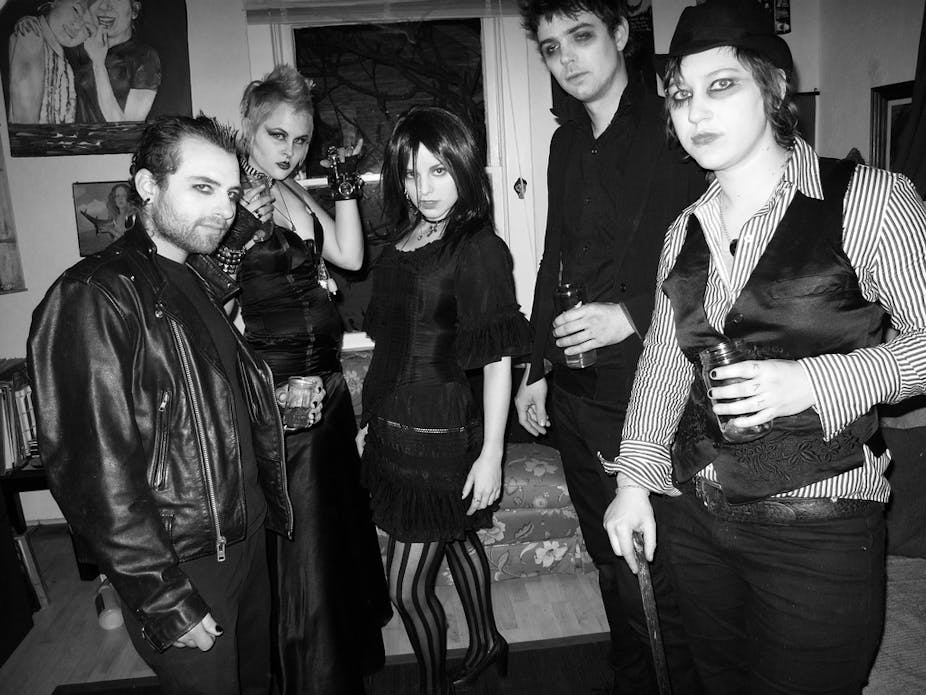When you’re a teenager, what your friends say and do really matter. Even for the most nonconformist adolescents, the clothes you wear, the music you listen to, whether or not you drink or take drugs, and even your attitudes and opinions about the world are often hugely influenced by your peers.
But does this effect extend to your mental health? Social factors such as living alone or experiencing abuse in childhood play a large role in whether someone becomes depressed. On the other side, social support (having people to talk to) is important for recovery from depression. So can the social impact of being friends with people who are depressed drag you down as well? And does having a positive mood keep those around you in high spirits?
To answer these questions, my colleagues and I studied data on more than 2,000 adolescents in a network of US high school students to see how their mood influenced each other. This involved modelling the spread of mood using similar methods to those used to track the spread of infectious diseases.
The difficulty with this method was the existence of examples that indicate something has spread when in reality it hasn’t (a false positive). In this case, a possible cause of false positives is the tendency for people to have friends who are like themselves. For example, if a group of friends all drink large amounts of alcohol and several become depressed it may be the alcohol rather than the friendships that cause the depression.

To deal with this issue, our analysis used longitudinal data (information recorded repeatedly over time). This allowed us to directly model changes in mood by noting each individual’s depression at one time point and whether or not this has changed at a second time point. This meant it did not matter what the other characteristics of the people were.
We found that depression does not “spread” between friends. But, on the other hand, having five or more friends with a healthy mood can halve the probability of developing depression over a six-to-12 month period. And having ten healthy-mood friends doubles the probability of recovering from depression compared to those who have just three such friends.
“Spreading” moods
It’s important to note that we don’t believe a healthy mood literally “spreads” like a disease but rather that it emerges from the behaviour of a complex social system. This behaviour is possible through a number of mechanisms. Research has shown people who are, or tend to be, depressed are less able to maintain a positive outlook from moment to moment. For these individuals, having sufficient exposure and interaction with healthy friends could address this issue. This can keep their own mood healthy or aid their recovery.
Additionally, depression has been associated with social withdrawal, meaning that depressed individuals would be expected to exert less social influence than adolescents exhibiting a healthy mood. This offers a possible explanation for why we found that depression didn’t spread.
These findings show that when it comes to mental health, parents shouldn’t be worried about who their teenagers are friends with. Having depressed friends does not put them at risk, but having healthy friends is both protective and curative. What’s more, the research supports the idea that depression should be a public health issue rather than an individual one and should be used to help counter the stigma attached to the condition.
It also suggests that one cheap, low-risk way to tackle depression among young people would be to simply encourage friendships, for example by providing youth clubs. If every teenager had more friends it could go some way to providing them with a protective effect against mental health problems.

